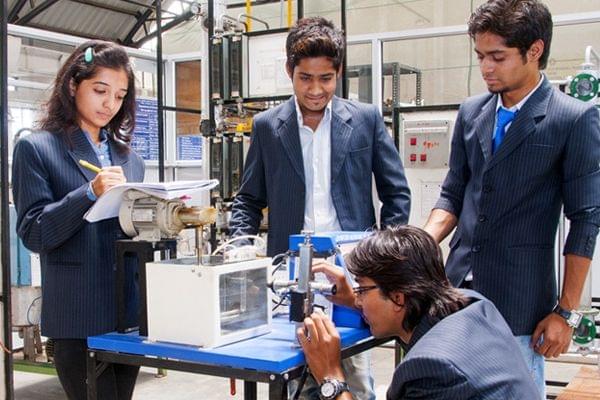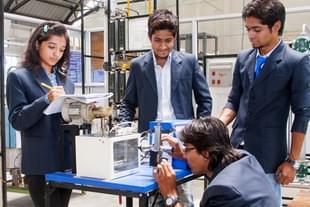Business
Is The PM Internship Scheme Following Caste-Based Reservation? No, Here's A Fact-Check
Swarajya Staff
Oct 06, 2024, 04:31 PM | Updated 04:31 PM IST
Save & read from anywhere!
Bookmark stories for easy access on any device or the Swarajya app.


The Modi government recently came up with the Prime Minister Internship Scheme, aimed at providing work experience to 1 crore persons of the young work force. The programme was originally announced by the Union Finance Minister during the Budget speech on 23 July. Following this, the programme was officially launched on 3 October.
The programme aims to provide internships to selected candidates, aged between 21 and 24, with the top 500 companies of India.
Soon after its launch though, sections of social media witnessed a narrative which implied that the programme had gone out of the rational bounds of social justice by implementing caste-based reservations in an internship programme meant for private companies.
However, the FAQs provided at the website of the programme makes it clear this view is incorrect.
Question 11 of the FAQ addresses this question precisely.
"Is there any provision for reservation to promote diversity and inclusion?
While the Prime Minister Internship Scheme does not have formal reservation provisions, the portal is designed to promote diversity and social inclusion. The algorithm ensures fair representation of all segments of the population, including SCs, STs, OBCs, and PwDs. The shortlisting process emphasizes diversity and inclusion, allowing companies to select candidates based on their own criteria, while the portal ensures that candidates from diverse backgrounds are considered for internships. This approach helps promote social inclusivity in the program."
This question and answer makes it clear that there is no reservation in the programme. At best, there is an effort to make the shortlisting broad-based and more inclusive. But companies will still 'select candidates based on their own criteria'. They are not supposed to follow any reservation guidelines.
The purpose of the scheme
India's demographic dividend has been a hot topic for years, but the its fruits remain frustratingly out of reach. The main issue? Many of the millions of "educated" youth graduating from Indian colleges and universities are simply not ready for the job market.
According to the Economic Survey 2023-24, only 51.25 per cent of graduates in India are considered employable. While this is an improvement from last decade's dismal figure of 34 per cent, it still raises serious concerns about the skills gap in our education system.
And if you think vocational training might be a shortcut to employment, think again—only about 2.2 per cent of individuals aged 15-59 have reported receiving formal vocational training, while just 8.6 per cent have had any kind of non-formal vocational training.
The bottom line is that India’s education system isn't equipping its youth with the skills they need to thrive in the workforce and previous government programmes, including Skill India, have fallen considerably short of their objectives.
While a complete overhaul is necessary to align educational outcomes with industry requirements, the PM Internship Scheme, which launched on 3 October, could offer a partial solution to the unemployment crisis.
Here’s how it works
Eligible candidates will begin by signing up on the portal, https://pminternship.mca.gov.in, which will generate a resume based on the information they provide. This means they can skip the stress of formatting their resumes—the portal takes care of that.
Once registered, candidates can browse through various options that fit their preferences, including specific sectors, job roles, and locations. They can apply for up to five internships that align with their qualifications and interests.
A pool of candidates will be shortlisted for each internship opportunity through the portal. This process will take into account the candidates' preferences alongside the requirements set by the companies.
Once the shortlist is ready, the portal sends the resumes of approximately two to three times the number of available positions to the respective companies. Employers can then review these candidates and select individuals based on their own hiring criteria.
When a candidate receives an internship offer, they can conveniently accept it through the portal, making the entire process seamless.
Which are the companies offering the internships?
The top 500 companies of India.
What is the duration of the internship?
Internships under the Prime Minister Internship Scheme will be for a duration of 12 months.
Who can apply?
--Indian citizens aged between 21-24 years (as on the last date for submission of the application).
--Candidates who are not employed full-time or engaged in full-time education (candidates enrolled in online or distance learning programmes are eligible).
--Candidates who have completed their Secondary School Certificate (SSC) or its equivalent, Higher Secondary Certificate (HSC) or its equivalent, or hold a certificate from an Industrial Training Institute (ITI), a diploma from a Polytechnic Institute, or a graduation degree such as BA, B.Sc, B.Com, BCA, BBA, B.Pharma, etc.
Who cannot apply?
--Persons younger than 21 years or older than 24 years of age (as on the last date for application submission).
--Persons who are engaged in full-time employment or full-time education.
--Persons who have graduated from specific institutions like IITs, IIMs, National Law Universities, IISER, NIDs, or IIITs.
--Persons who hold advanced qualifications such as CA, CMA, CS, MBBS, BDS, MBA, PhD, or any master's degree or higher qualification (recognized by the UGC).
--Persons undergoing any skill, apprenticeship, internship, or training programme under a Central or State Government scheme, or persons who have already completed an apprenticeship under the National Apprenticeship Training Scheme (NATS) or National Apprenticeship Promotion Scheme (NAPS).
--If the income of any of family member of a person exceeds Rs 8 lakh for FY 2023-24. Family member means self, parents, and spouse.
--Any person whose family member is an existing government employee (excluding contractual employees).
What is the stipend and who pays for it?
Interns will receive a monthly stipend of Rs 5,000 for the 12-month programme. Partner companies will contribute Rs 500, while the government will provide Rs 4,500 through Direct Benefit Transfer (DBT) to the intern’s Aadhaar-linked bank account.
Additionally, a one-time grant of Rs 6,000 will be given upon joining.





